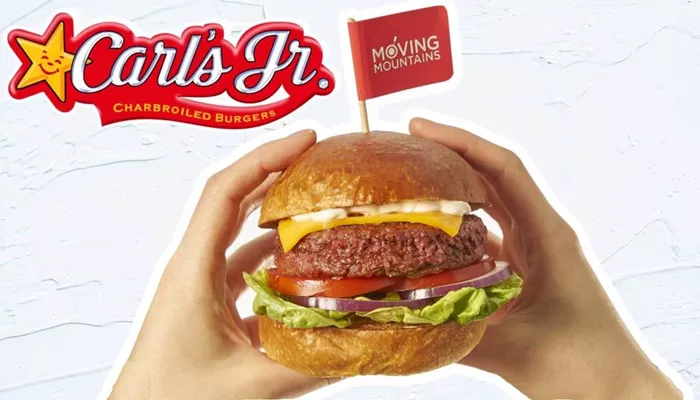Fast food is a significant part of American culture, with burgers being a staple choice for many. Among the popular chains, Carl’s Jr. stands out for its bold flavors and extensive menu offerings. A common question among consumers is whether Carl’s Jr. burgers are made from 100% beef. Understanding the ingredients in fast food is essential for health-conscious diners and those who prioritize quality in their meals. This article will explore the beef content in Carl’s Jr. burgers, examining their claims and what consumers can expect when they order.
The Beef Behind Carl’s Jr. Burgers
What Does “100% Beef” Mean?
When a restaurant claims its burgers are made from “100% beef,” it implies that the patties contain no fillers, additives, or other types of meat. This claim is crucial for customers who want to ensure they are consuming pure meat without any questionable ingredients. In the fast-food industry, transparency about meat quality is becoming increasingly important as consumers become more aware of food sources and health implications.
Carl’s Jr.’s Commitment to Quality
Carl’s Jr. markets its burgers as being made from 100% Angus beef. Angus beef is known for its superior flavor and tenderness compared to other beef types. According to the company, their patties are charbroiled, which adds a distinct flavor that many customers appreciate2. However, the term “100% Angus beef” can sometimes lead to confusion regarding what exactly is included in the meat.
Ingredient Transparency
Carl’s Jr. provides nutritional information on its website, detailing the ingredients used in their burgers. For example, the Big Angus Big Carl® burger features charbroiled 1/3 lb. Angus beef patties along with classic sauce, melted American cheese, and lettuce on a potato bun.
This burger exemplifies Carl’s Jr.’s focus on quality ingredients.
Are Carl’s Jr. Burgers Really 100% Beef?
Investigating the Claims
While Carl’s Jr. promotes its burgers as being made from 100% Angus beef, some customers have raised concerns about the actual meat quality used in their products. Discussions on platforms like Reddit suggest that while the patties may be primarily beef, there could be variations in quality based on sourcing and preparation methods.
Quality Control Measures
Fast-food chains like Carl’s Jr. often have quality control measures in place to ensure consistency across locations. They typically source their meat from suppliers who meet specific standards set by the company. However, variations can occur due to factors such as regional suppliers or changes in sourcing practices over time.
What About Fillers?
In general, reputable fast-food chains strive to avoid using fillers in their beef patties; however, some may still incorporate small amounts of other ingredients for flavor or preservation purposes. It is essential for consumers to be aware that even if a burger is labeled as “100% beef,” it does not always guarantee that there are no additional ingredients involved.
The Ratio of Beef to Other Ingredients
Understanding Meat Ratios
When discussing fast-food burgers, it is also important to understand the ratio of beef to other components in a burger, such as buns and toppings. A well-constructed burger should have a balanced ratio of meat to bun and toppings for optimal flavor and texture.
Carl’s Jr.’s Meat-to-Bun Ratio
Reviews indicate that Carl’s Jr. generally maintains a favorable meat-to-bun ratio in its burgers6. Customers often report that their patties are substantial enough to provide a satisfying bite without overwhelming the other components like lettuce, cheese, and sauces.
Nutritional Considerations
Caloric Content and Health Implications
Fast food is often criticized for its high caloric content and unhealthy ingredients. For instance, a typical Carl’s Jr. burger can contain anywhere from 600 to over 1,000 calories depending on size and toppings. It’s crucial for consumers to consider their dietary needs when indulging in fast food.
Comparing with Other Chains
When comparing Carl’s Jr.’s offerings with other fast-food chains known for using 100% beef—like Five Guys or Burger King—it’s evident that many places prioritize quality meat without fillers. Each chain has its unique approach to sourcing and preparing beef, which can influence taste and nutritional value.
Consumer Perceptions
Public Opinion on Quality
Consumer opinions about Carl’s Jr.’s burger quality vary widely. Many patrons appreciate the taste of their Angus beef burgers and feel satisfied with their meals. However, others express skepticism about whether the advertised quality matches what they receive.
The Importance of Transparency
In an era where consumers demand more transparency regarding food sources and ingredient lists, fast-food chains must clearly communicate their practices. Carl’s Jr.’s commitment to using 100% Angus beef is a step towards meeting this demand but should be backed by consistent quality assurance measures.
Conclution
In conclusion, Carl’s Jr. claims that its burgers are made from 100% Angus beef, which appeals to many customers seeking quality fast food options. While there may be concerns about ingredient transparency and variations in meat quality across locations, overall customer satisfaction remains high regarding taste and portion sizes.
As consumers become increasingly health-conscious and discerning about their food choices, it is vital for fast-food chains like Carl’s Jr. to maintain high standards of quality and transparency in their offerings. By doing so, they can continue to thrive in an ever-competitive market while satisfying customers’ cravings for delicious burgers made from real beef.
Related topics:
- Does Carl’s Jr. Have A $5 Meal?
- Is There Chick-Fil-A Outside of The Us?
- Are Nacho Fries Still Available at Taco Bell


